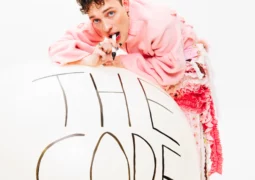The UK, France, Germany and Spain (also known as the 'Big 4' countries) could lose their guaranteed place in the Eurovision Song Contest final following criticism that the event is becoming increasingly biased against western European countries.
Eurovision organisers have told MediaGuardian.co.uk that the issue of the Big 4's guaranteed place in the final will be one of a number to be discussed at a meeting of the European Broadcasting Union in Athens in two weeks' time.
A senior BBC, (UK broadcaster), insider said that it has an "open mind" about the controversial proposal, which, if implemented, could see the UK's aswell as France, Germany and Spain'sEurovision entries have to qualify and potentially fail to make the final for the first time in the event's history.
Russia's Dima Bilan won Saturday's contest in Belgrade, with the Ukraine coming second. The UK, Germany, France and Spain – the "big four" Eurovision countries who get an automatic place in the final because they contribute the most funding – all came in the bottom 10. The UK's entry, The X Factor finalist Andy Abraham's Even If, came joint last.
A growing feeling that the UK may never win Eurovision again has even led BBC commentator Sir Terry Wogan to say he may quit, claiming political bloc voting had got out of control. BBC1's ratings for this year's event were also down, with 7.1 million viewers on Saturday, compared with last year's 8.7 million.
The head of the Eurovision Song Contest, Svante Stockselius, told MediaGuardian.co.uk that potential changes would be discussed when the 42 participating countries meet next month. "Every year, we evaluate and debrief each contest. We will discuss these things there," Stockselius said. "We did a couple of big changes to this year's event, with the introduction of two semi-finals. We do not exclude that we will look into different changes for next year."
When asked if the poor performance of the "big four" countries could be down to other countries purposely voting against them, he replied: "It could be." Stockselius added: "I don't think it is jealousy, but it might be that people think: 'Why should we vote for them when they are automatically in the final? Lets vote for someone else'. It could be something like that."
Making the "big four" compete in the Eurovision semi-finals could lead to them cutting their funding, but Stockselius said the scale of sponsorship the contest now attracts meant it could afford to carry on without this money. "Of course we would have to look into funding, but we have such big sponsorship now it could manage," he said. "It would be a point of discussion."
The BBC's controller of entertainment commissioning, Elaine Bedell, told MediaGuardian.co.uk that the corporation was keen to talk to the EBU about potential changes. "We are going to sit down with the EBU pretty soon to see what the best way forward is," she said.
However, taking part in the semi-final could lead to a position where the UK misses out on a place in the final. This is a scenario the BBC would be keen to avoid when, due to its contract, it has to screen the three-hour final in peaktime on BBC1. However, Stockselius said: "That is a question 38 other broadcasters have to face."
BBC sources said the corporation had an "open mind" about the UK potentially losing its automatic place in the final. "We would have to think clearly about it, although it would be a bit odd giving over primetime without the UK in the final," one insider said. Stockselius added that taking part in the semi-finals might be a decision the "big four" broadcasters should take for themselves in order to bring greater interest to the contest. "Maybe it should be something for the broadcasters to consider," he added. "They would most probably get a better rating in the semi-final."
BBC insiders said that as well as potential changes to the contest's structure, questions also had to be asked about what acts the UK put forward in future. "The viewing figures for this year's contest were fantastic, but we need to think about the sorts of musical acts we put forward in the future and how we want to approach it," a BBC insider said. Stockselius said he did not agree with the argument that the "big four" would never win again, adding it was "fully natural and understandable" for countries to be disappointed when they did badly.
However, he added that it was "more the matter of the song and performance" and praised the Russian entry – which was produced by top US artist Timbaland – as a "worthy winner".




